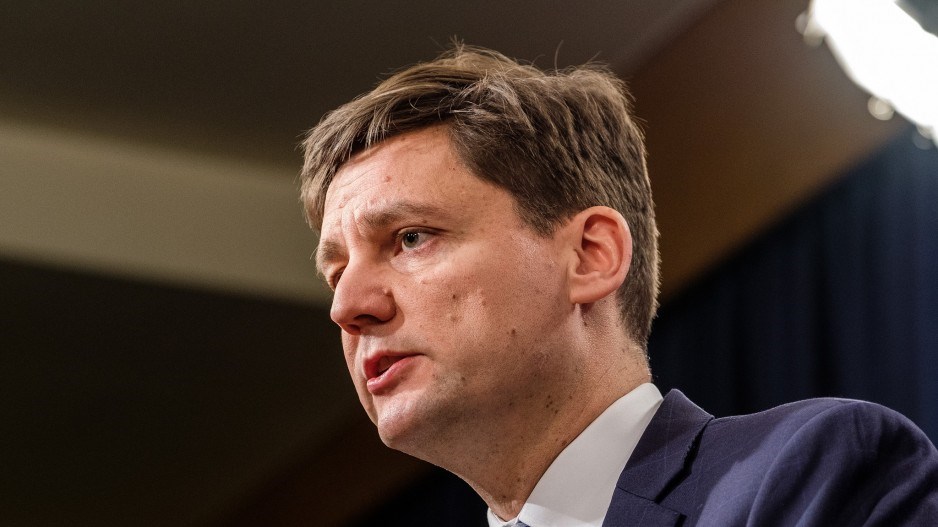David Eby never actually called himself the “man of action,” but boy has the moniker stuck in the early days of the premier-designate’s tenure.
Unfortunately, that label is proving to be both a blessing and a curse.
Eby’s transition to power has been marked by the continual raising of expectations on how quickly he wants to get to work, and how ambitious he’ll be in the scope of his change. He’s signalled he’ll drop major legislation immediately after taking office, and then embark on a cabinet shuffle that will dramatically reshape John Horgan’s front bench.
There’s a lot of pressure on him to deliver. And that, in turn, has raised interesting questions: Has the bar been set too high for what Eby can realistically achieve in the first few weeks in the top job?
If so, how exactly did those expectations get so overhyped? Has Eby lost control of the narrative around his transition? And what does all of this mean for his introduction to the public during his first few weeks as premier?
Chomping at the bit to reframe this in the most negative way possible are the Opposition BC Liberals, who’ve taken to cheekily calling Eby the “man of inaction” as he dawdles through a slow-motion transition to power.
But the issue of narrative disconnect has been brewing for some time.
In August, Eby made headlines for saying he was “frustrated” at being challenged in the BC NDP leadership race by Anjali Appadurai because it “delays moving into the office by several months.”
It was a simple gaffe, which he quickly mitigated by apologizing, and yet the quote is often resurrected by critics who point out his campaign stalled and was ultimately unable to release his platform over the subsequent 59 days before Appadurai was disqualified.
Eby then pivoted into a promise of “laying out my plan for the first 100 days of the government under my leadership,” to turn the page on the Appadurai controversy.
It was the right call. Yet the plan was oversold. Instead of action items, it ended up being a vague 429-word table of contents for the priority areas of health care, crime, homelessness, addictions and climate change. Ultimately, most people were disappointed, and his critics pounced again.
Eby nonetheless regained momentum by appointing a stellar transition team and senior administration, including co-chair Carole James and chief of staff Matt Smith.
He parlayed that into a well-received speech after meeting the lieutenant-governor at Government House, where he announced he would “hit the ground running” on the major issues British Columbians are concerned about. He also said he was working on legislation that would kick-start the work of his administration.
Yet that forward progress was quickly undermined by news he wouldn’t actually be sworn in as premier until Nov. 18 – 29 days after winning the leadership race.
The public was left to reconcile how a senior minister in an existing government, who’d been saying for months he was itching to take action, and who’d promised a plan ready to launch, needed a full month to start the job.
The situation wasn’t helped by the NDP choosing to cut one of the two remaining weeks of the fall legislative session during Eby’s transition. That gives the new premier only four days to pass whatever legislation he’s planned, and almost assuredly means Eby will have to cut short debate and ram through his bill. It is unpleasant messiness that could easily have been avoided.
All those ups and downs have led to much head scratching amongst those watching B.C.’s 37th transition to power.
Eby picks up a bit of steam, and then is dragged back by lengthy timelines. He promises action, then is hit by slow-motion execution. Every time he speaks, expectations rise.
New Democrats point out how complicated transitioning a premier into office is, and how many briefings, meetings and organizational minutia are clogging up his days.
That may very well be true. But this is not the first time a premier has transitioned into office. While New Democrats may be reinventing the wheel on transition, those of us who’ve seen it happen before can tell you the truth: This is slow, given the circumstances. If Eby wanted to go faster, he easily could.
Ultimately though, none of this may matter.
If the new premier launches out of the gate on day one with ambitious housing legislation, skilfully outmanoeuvres his opponents to pass it, swears in a new cabinet before Christmas, and emerges with a blockbuster budget full of goodies in February – his awkward stop-and-start transition to power, and all the narrative disconnect it suffered, will be barely a footnote in the history books.
Rob Shaw has spent more than 14 years covering B.C. politics, now reporting for CHEK News and writing for Glacier Media. He is the co-author of the national bestselling book A Matter of Confidence, and a regular guest on CBC Radio.




